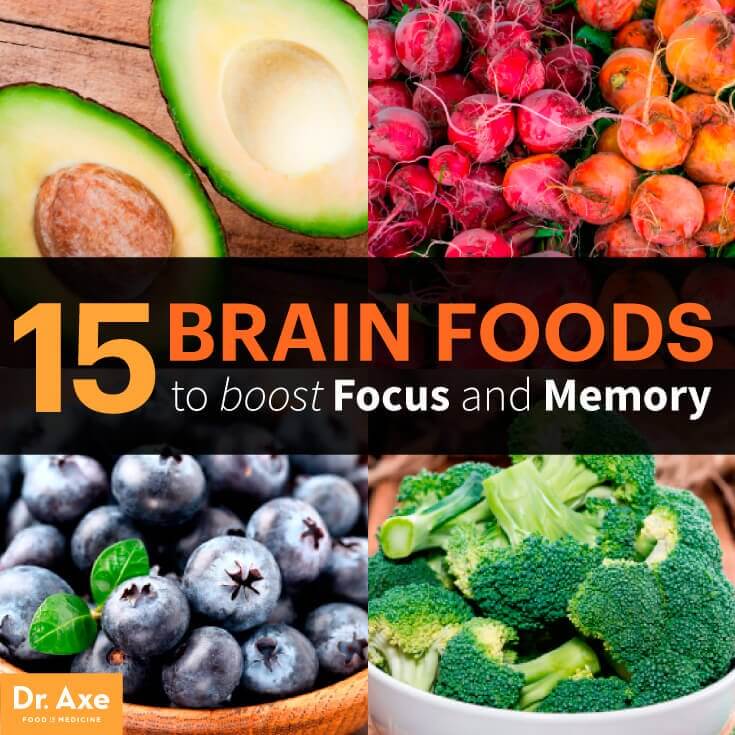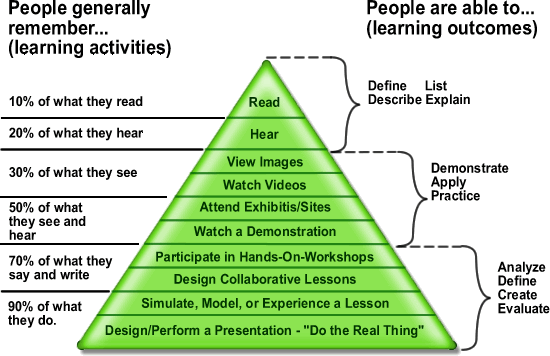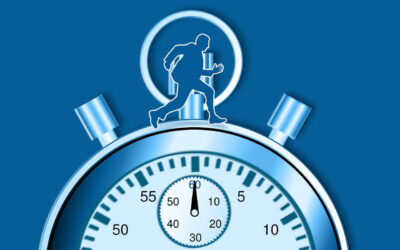How to improve memory to study faster and better
 Need to study a lot but running out of time? Having difficulties in remembering information?
Need to study a lot but running out of time? Having difficulties in remembering information?
This list of tips will help you to improve your memory, as well as learning and studying skills to learn things faster and better.
Learning these principles of better memorization, you will be able to save lots of time in the future and remember information better.
For many years, I have been learning different aspects of personal growth like time management and goal setting try to optimize my time and reach more goals faster. To spend less time on learning new information, I also needed to learn many memory tips that I will now share with you. Let’s start!
First things first. I’d like to start with tips to help to improve your memory on the long term, and then give you guidelines on learning the information for your exam or to improve your qualifications aiming at a rapid career growth.
How to Improve Your Memory
There are several ways how you can improve your memory on a long term. Using these tips will help you to learn things easier in the future and have less problems with memorization.
What Food Boosts Memory

Most helpful for your brain is the food rich in antioxidants, good fats, some vitamins and minerals, and even sugar in small doses, especially if obtained from fruits. According to the authoritative blog on healthy foods Dr. Axe, the 15 most helpful foods to boost your memory are:
- Avocados. They contain lots of healthy monosaturated fats, Vitamins K, B and C, as well as folate.
- Beets. Rich in antioxidants, natural nitrates and numerous vitamins, they are one of the best vegetables for your brain.
- Blueberries. Its antioxidants, Vitamin C and K, fiber, and natural sugar will improve your memory.
- Bone Broth. This food is mostly helpful for your brain due to amino acids and collagen.
- Broccoli. If you’ve ever been interested in eating healthy, you’ve probably seen broccoli in the lists of best foods for many aspects of heath. It is also great for your memory due to Vitamin C, K, and choline.
- Celery. With loads of antioxidants, polysaccharides, vitamins, minerals and nutrients, it should appear in your everyday menu.
- Dark chocolate. With at least 70% of cocoa and in small portions, chocolate can be very healthy for you and can improve your memory. During exams or other intense mental activities, it also helps your brain to work better.
- Other foods that will improve your memory are coconut oil, egg yolks, extra virgin olive oil, green vegetables, rosemary, salmon, turmeric and walnuts.
Games for Better Brain
There is a large number of games that can improve your memory. Some of them include crosswords, Sudoku, chess, jigsaw puzzles. You can also try to remember your shopping list. Try at least one of them and you will notice that your memory is improved.
Lumosity is great tool with many games to boost your memory, flexibility, attention and processing speed. It offers a personalized program with a score tracking (how much you improved your soft skills), as well as allow to compare your score with other players.
Do things differently
If you do things in a different way, your brain will keep working and improving, and it will help to boost your memory. Such activities can be for example writing with a left hand (if you are right-handed), using another route to go to work or home, performing your daily activities in another order and much more…
Learn Foreign Language

Another way to improving your memory is learning a foreign language. This will be especially useful if you know just one. According to a recent study, bilinguals have a better short-term memory than monolinguals.
Do Physical Activity
Doing sports regularly or at least having some morning exercises also helps you to boost your memory. According to the Harvard Medical Publishing, doing physical activities help to make your body resistant to insulin, reduces inflammation and stimulate the release of growth factors.
Get Enough Sleep
Regularly sleeping enough will help you to stay concentrated while learning new material and will improve your mood and memory. By most of the health-related resources, it is recommended to sleep at least 8 hours to be good at all these.
However, many successful people of today like Barack Obama, Elon Musk, Donald Trump, Jack Dorsey and the past like Nikola Tesla, Thomas Edison, Henry Ford and many others used to sleep just between 2 and 6 hours and still stay efficient and productive.
My recommendation for you is to try some better sleeping techniques to find out, what is your perfect sleeping schedule and the amount of time your body needs to rest and be ready to work.
Drink Enough Water
Your body consists of about 60-70% of water, while your brain has almost 80% of it! It means that to work properly, your whole body, and especially your brain needs about 8 glasses of water per day. Stick to this habit and it will help you to improve different aspects of your health and you will just feel better.
Don’t Stress
Try to avoid stress in your daily life and don’t make your brain strain when it doesn’t have to. Don’t try to do everything at once, avoid multitasking and make breaks. All these will help you to avoid stress and consequently, improve your memory and learning skills.
If you’re feeling stressed and you can’t get rid of this feeling, you might need to take online therapy consultations.
Find Free Time
Another way to avoid stress is to find free time to meet with your friends or family, socialize, relax, do sports or anything that you like. You always need to keep the work/life (or study/life) balance.
Find your Best Method of Learning
While you don’t have to hurry up to study for an exam or test, find your best learning method. For everybody, it can be different. Some people prefer to learn information by hard, some like to visualize it, some walk when they study, some like to listen to it. Try different ways and find the best one for you.
So, now you have a great memory, right?
Just in case, let’s repeat the main tips to improve it: eat the right food, play brain games, do things differently, learn foreign languages, do physical activities, get enough sleep, drink enough water, don’t stress, find free time, and find your best method of learning.
With a sharper memory, you will be able to memorize information better. But, how to learn faster?
Read the following tips to learn information more efficiently.
How to Learn Things Faster and Better
Hopefully, you already found your best ways to learn information. Choose one of the following three methods that is most useful for you. If you need to study right now, just pick one that seems most appropriate to you or use all three.
Visualization
Many people are visuals, which means that they learn the information much faster when they see its graphical representation.
Some of the greatest ways to visualize difficult information are tables, graphs, charts, and my favorite one (which also requires more time) are mind maps. Hmm, hard to explain you what a mind map is. I’ll better show its graphical representation:

Of course, you cannot draw or find a picture of everything. How would you represent ‘inflation’? What about ‘metadata’? In these cases, the visual representation would be just definition in words, where you can highlight the main words by markers.
Say it aloud
This method can also be suitable to most of the people. According to study of Memory Journal, when you read the information you need to learn aloud, you will remember it much better.
Let Others Read It for You
Some people can remember things better if they hear the information. It can mean listening to the professor in class, letting your friend read the text of your speech for you, or sitting near the person learning the same information as you but using the previous method (reading it aloud).
If you don’t have any of the options above, and your friends are too busy to read something YOU need to learn, you can use apps that will read text for you.
The next tips to learn information better and faster will be useful for everyone.
Create Weird Connections in Your Brain
There is a famous and unusual memorization technique that works especially well if you need to remember some abstract information. It can be a phone number, an abbreviation or a formula.
Here is how it works.
Step 1. For each symbol/letter/digit, you make up some weird connection that reminds you of this symbol. For example, if the first digit in the number of the girl you liked is ‘2’, you can remember it as a swan, if the next one is ‘0’, it looks like a lake, if the following digit is ‘3’, it can remind a butterfly wing, ‘4’ could be a flag and so on. There are only 10 digits, so you can remember your associations with them once and then use them all the time.
Step 2. Then you connect those associations, creating entire sentences that can be very unreal and weird, because it will help you to remember better. Continuing the example above, the sentence could start with “A swan in the lake turned into a butterfly and sat down on the top of the Spanish flag…”
Step 3. Try to connect the final sentence with the thing you are trying to remember. Should it be a girl phone number or your id number, try to associate the sentence with it (not the number, but the girl or id).
Translate Numbers to Words
Another way to memorize numbers is the ‘consonant system’ (you don’t need to remember that name J). Here is how it works: you associate each digital with particular letters, and make up words out of those letters to remember long rows of numbers. This system is explained better on WikiHow.
Perform Different Tasks during the Day
Even if you need to learn a large text, you will be better at it if you change tasks during the day. It can be even learning something different. Sitting on one subject the whole day, you lose motivation, interest and just your memory refuses to digest more of the same information.
When I had to study for exams, I often switched to learning some German or going for a walk, as changing activities works like a rest for your brain.
Don’t Multitask

At the same time, don’t do several tasks simultaneously. By multitasking, you don’t save time (especially if both tasks require concentration), and perform badly at both.
When you learn, you need to be concentrated on one task; otherwise, you won’t be successful in it.
Put away your phone, turn off internet on it, close unused browser tabs, close unused programs, and clean your desktop (both virtual and real ones). Avoiding such distractors helps you to stay concentrated.
Keep Your Goal in Mind
To stay motivated and effective in learning, you should keep your final goal in mind. Do you need to know the information to be better at your job or you learn materials for a useless (for you) subject that you just want to pass? Read here about setting the right goals.
The way you learn will depend on your final goals.
Apply Your Knowledge in Practice

Maybe you have heard of a study represented on the graph above. A more recent study revealed that these percentages are wrong, but the general idea is still true. By reading information, you remember less of it than when you see it (visualization), hear it, and the most efficient method of learning it is applying it in practice.
Of course, it is not always possible, but imagine how you could apply the concepts you learn to your daily life.
Connect Information you learn to what you know
When you learn new information, try to connect it to what you have learned before to have a global picture of the subject it represents. This will also help you to learn further information and have a fuller picture of how the world works.
Take Breaks

You need to take breaks in your learning process, and a short walk in the nearby park can be a great way for that. It not only gives your brain some time to rest, but also allows it to get some fresh air, which will improve its work.
Repeat what You’ve Learned in Stages
This is, probably, the most important tip to learn better and more efficiently.
According to recent studies, people forget about 50% of information that they’ve heard or learned within an hour. Within 24 hours, we remember just 30% of this information.

In order to remember up to 90% of information, you need to repeat it in particular intervals. Depending on how much time you have to learn the material, there are two versions that allow you to spend the minimum amount of time on learning and remember almost everything.
If you have just two days to learn the information:
1st repetition – right after finishing reading
2nd repetition – 20 minutes after the first repetition
3rd repetition — 8 hours after the second one
4th repetition – 24 hours after the third one
Take into account that then the information you’ve learned will be stored in a short-term memory, so if you don’t continue repeating it later, you will forget it very soon.
If you have an unlimited time to learn information:
1st repetition – right after finishing reading
2nd repetition – 20-30 minutes after the first repetition
3rd repetition – 1 day after the second one
4th repetition – 2-3 weeks after the third one
5th repetition – 2-3 months after the fourth one
This is not the only good way, but it is an optimal way to learn information and remember it for long spending the minimum amount of time.
Create a Learning Schedule
To be able to assess, how much time you might need to learn the full material, you should separate it into chunks, see how many of them you have, and estimate the amount of time you need for each of them (taking into account repetitions from the previous point). In the end, you get the total number of hours you need for learning.
Then, knowing how many days you have, you can plan your learning schedule. Try not to leave learning of some material for the last day. You might have unexpected tasks, and you won’t be able to stick to the plan for one or two days. Better to have some time reserve.
Eat Well
While you learn, you should minimize greasy food, foods with simple carbohydrates (like desserts, white bread and pastry) and soft drinks. You should also try not to eat too much at once, as it will significantly increase the level of glucose in your blood, which will make you feel tired.
Make Small Rewards

No burgers, no soda, no nights out, strict schedule… Should I suffer during the whole process of learning?
Of course, you need to make small rewards when you completed some stage of learning. Can be a coffee in your favorite café, beer with friends or a piece of chocolate in the middle of the day.
Rewards can be different, and they are even necessary to keep you motivated.
It was a full guide with (probably) all tips and techniques to improve your memory, study faster and better. Hopefully, it was helpful for you and now you’ve saved tons of time to enjoy your favorite activities instead of learning all the time. Check also time management principles to save even more time.



Thanks a lot for the post.Really thank you! Much obliged.
Thanks so much for the post.Really thank you! Keep writing.
Thanks so much for the post.Much thanks again. Really Cool.
Cool tips Roman! Love all of em. Taking frequent breaks and also resting up nightly help me retain ideas big-time. Taking different routes to places, changing things up, doing yoga and also, exercising are memory boosters for me too.
Ryan
I really love your blog.. Pleasant colors & theme.
Did you build this web site yourself? Please reply back as I’m hoping to create my very own blog and want
to find out where you got this from or exactly what the theme is named.
Many thanks!
Hey. thanks. Yes, I did. The theme is called Indigo by WPZOOM. Good luck!
You can learn faster by way of repetition This means you don’t need to memorize anything while learning.
When you try to remember you force your brain to do something it’s not ready to do at this moment. The secret most people don’t know is that the brain can remember itself without being forced to do so, but it has it’s natural way to do so.
If you try to memorize things and study hard, you are forcing your brain into learning and the effect is that you don’t learn well.
You can learn faster when you repeat a lot of times the information you need to remember without trying to remember it. This way your brain will absorb it in at an optimal, faster pace.
good tip. thanks
Awesome post! I’m going to show this to my wife. This is absolutely worth reading. Thanks for posting!
You’re welcome.